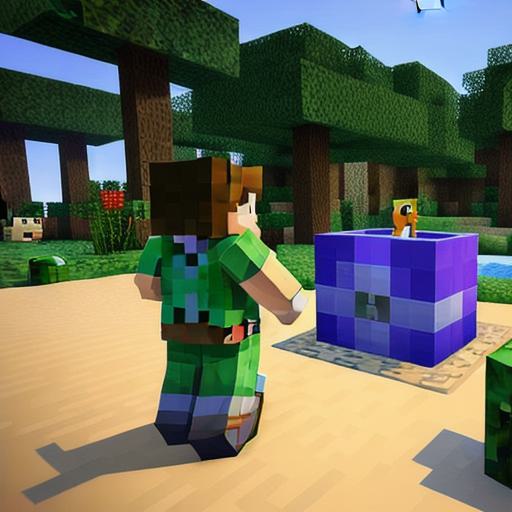Introduction
Game development and game design are two distinct but closely related fields that are essential for creating engaging and immersive games. While both involve the creation of interactive experiences, they differ in their focus, methodology, and skill set. In this article, we will explore the definitions, differences, and similarities between game development and game design, along with real-life examples and expert opinions to help developers understand these fields better.
What is Game Development?
Game development is the process of creating video games from concept to completion. It involves a team of professionals who work together to bring a game idea to life. The game developer’s role is to manage the overall project, coordinate with different teams, and ensure that the final product meets the requirements and expectations of the target audience.
Game development includes several stages, such as:

- Pre-production: This stage involves brainstorming, conceptualization, and planning for the game’s design, mechanics, and features.
- Production: In this stage, the actual development of the game takes place, including programming, art, audio, and testing.
- Post-production: This final stage involves polishing the game, adding finishing touches, and preparing it for release.
Expert Opinion: "Game development is a complex process that requires coordination, communication, and attention to detail," says John Carmack, co-founder of id Software and lead developer of the Doom series.
What is Game Design?
Game design, on the other hand, focuses specifically on the creation of the game’s content, mechanics, and user experience. The game designer’s role is to define the rules and goals of the game, create the levels and environments, and balance the difficulty and progression of the game.
Game design also includes several stages, such as:
- Conceptualization: This stage involves brainstorming ideas for the game’s theme, setting, and mechanics.
- Prototyping: In this stage, the game designer creates a prototype or a working model of the game to test and refine its mechanics and design.
- Playtesting: This final stage involves testing the game with a group of players to gather feedback and make any necessary adjustments before release.
Expert Opinion: "Game design is all about creating a fun and engaging experience for the player," says Shigeru Miyamoto, creator of Super Mario Bros. and The Legend of Zelda series. "It’s about finding the right balance between challenge and reward, and making sure the player feels like they are part of the game world."
Differences Between Game Development and Game Design
While both game development and game design involve the creation of interactive experiences, there are several key differences between the two fields. These include:
- Scope: Game development involves a broader range of tasks, including project management, coordination, and testing, while game design focuses specifically on the content and mechanics of the game.
- Timeline: Game development is typically a longer process than game design, with production often taking several years to complete. Game design, on the other hand, can be completed in a matter of months or even weeks.
- Skill set: Game development requires a diverse range of skills, including programming, art, audio, and project management, while game design primarily relies on creative thinking, problem-solving, and game theory knowledge.
- Team structure: Game development involves a larger team with different specializations, while game design is often led by a single designer or team of designers.
Real-Life Examples
To illustrate the differences between game development and game design, let’s look at two real-life examples: the creation of Minecraft and The Witcher 3: Wild Hunt.
Minecraft is a sandbox adventure game created by Markus Persson (also known as Jeb). The game was developed over several years, with Persson handling both the development and design aspects of the project. He used a simple block-based graphics engine and focused on creating a basic set of mechanics, such as mining, building, and exploring. Over time, Minecraft has grown into a massive online phenomenon, with millions of players worldwide contributing to its content and gameplay.
The Witcher 3: Wild Hunt, on the other hand, is an open-world action role-playing game developed by CD Projekt Red.
